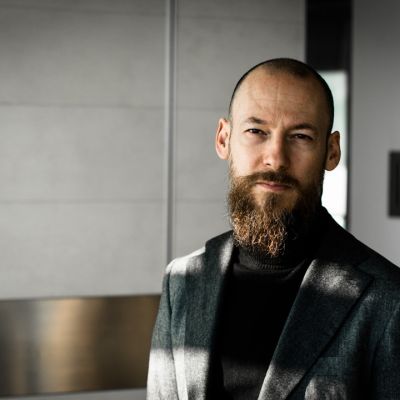From age-old home remedies to the latest hair care products, the world is full of myths about hair growth. But how many of these beliefs hold up under scientific scrutiny?
Many of these common hair myths could cause more harm to your hair than you might realize. As a hub of learning in the hair growth industry, HairClub is committed to empowering our readers with facts about hair growth backed by science—so you can make better-informed decisions about how to regrow hair.
Whether you’re trying to regrow thinning hair or just looking to give your locks a healthy boost, here’s what you need to know about hair growth to separate fact from fiction.
7 Common Myths About Hair Growth
Does frequent shampooing lead to permanent hair loss? Can natural oils make your hair grow faster? When it comes to hair growth, there’s plenty of advice out there, but not all of it is rooted in science.
Let’s bust some of the most common myths about hair growth to uncover the truth about what really supports hair growth.
1. Cutting Hair Makes It Grow Faster
One of the most pervasive myths is that a regular trim can speed up hair growth. But the truth is that cutting your hair doesn’t affect the growth rate.
Hair growth starts at the roots, not the ends. Cutting the ends of your hair can’t affect the follicles responsible for your hair’s growth. While regular trims every four to six weeks can improve the look of your hair by reducing split ends, it won’t lead to faster hair growth.
2. Frequent Shampooing Causes Hair Loss
Shampooing removes dirt, oil, dead skin cells, and product buildup that can clog hair follicles and weigh down your hair. Not every hair type requires daily shampooing, but regular washes keep your hair looking fresh and clean, allowing it to absorb products better, whether it’s your standard conditioner or a volumizing treatment like HairClub’s Xtrands®.
But is it possible to wash your hair too much? The idea that frequent shampooing can damage your hair is a misconception. While losing a few hairs during the wash process is normal, you shouldn’t experience dryness or damage after shampooing.
3. Gray Hair Is Caused by Stress
If you find a sudden streak of gray in your hair, it’s not a sign of stress. This misconception is extremely common, but there’s no scientific evidence to support the claim that stress can turn your hair gray.
Graying hair is a complex equation, mostly determined by genes and the natural aging process. As you age, you produce less of the pigments responsible for hair color. That means new hairs will grow in gray instead of your usual hair color.
4. Natural Oils Are Universally Beneficial
When it comes to hair care, you’ve probably heard a lot about how important it is to avoid stripping your hair’s “natural oils.” Hair oil, also known as sebum, is produced by the sebaceous glands in your scalp. This oil keeps your hair moisturized and protects your scalp. It also keeps the cuticle—the outer layer of your hair strands—smooth to improve shine and reduce frizz.
But natural oils aren’t always good for your hair. Too much oil can lead to clogged pores or even scalp conditions like dandruff or folliculitis. Excess oil can also lead to greasy hair, weighing down your strands and giving them an oily or stringy appearance.
5. More Expensive Products Guarantee Better Results
It’s easy to assume that higher-end products are the secret to better hair results, but the science behind hair care products goes deeper than the price tag.
Any shampoo that contains a cleansing agent will do what it’s supposed to do—keep your hair and scalp clean. What’s more important than the price tag is the ingredient list. A shampoo that contains concentrated or targeted ingredients can benefit the health of your hair and scalp.
6. Hats Can Negatively Impact Hair Growth
Unless your hat is so tight that it’s causing extreme scalp tension and hair breakage, wearing a hat doesn’t impact the growth of your hair. Hair loss is typically caused by genetic factors, hormonal changes, or health conditions—not wearing hats.
7. Heat Styling is Always Damaging to Hair Health
A common myth about hair growth is that heat styling always damages your hair. But don’t put down the curling iron or blow dryer just yet.
While it’s true that excessive heat can damage hair, there are ways to use heat tools responsibly to minimize damage. Use an appropriate heat setting for your hair type and apply a heat protectant to your hair strands before styling.
Evidence-Based Insights for Hair Growth
When it comes to hair growth, there’s no shortage of myths and misconceptions. But to truly boost hair growth, it’s crucial to rely on evidence-based insights—what the science says works, not what the latest trend claims.
Let’s explore the interesting facts about hair growth that are backed by science.
Factors Influencing Hair Growth Rates
There’s no single cause for hair growth or hair loss. Everything from hormonal changes to diet can play a role in how your hair grows.
The biggest factor, however, is genetics. If your parents have thick, fast-growing hair, you’re more likely to experience the same. Along the same line, if they experienced thinning or slower growth, you should be prepared for a similar experience.
Nutrition and Hair Growth
What you eat plays a bigger role in hair growth than you might think. Hair is made mostly of a protein called keratin. The body needs a solid supply of nutrients to keep building healthy keratin.
Protein-rich foods like eggs, fish, and beans create a building block for hair growth, while vitamins and minerals like biotin, vitamin D, and iron are crucial for healthy and resilient hair.
Hormones and Hair Growth
Hormones have a powerful effect on hair growth and are often the hidden culprit behind sudden changes in thickness or texture. A hormonal fluctuation like puberty, pregnancy, or menopause can disrupt your hair growth cycle, leading to thicker or thinner strands.
The best-studied hormone for hair loss is dihydrotestosterone (DHT). TThis hormone can cause hair follicles to shrink—a process known as hair miniaturization—resulting in thinner hair shafts and, eventually, no hair being produced. Too much of it can even lead to conditions like androgenetic alopecia or hereditary hair thinning.
Common Hair Growth Treatments and Their Efficacy
After unraveling the myths and facts about hair growth, you might be wondering: What are the best ways to get your hair growing again?
Let’s break down the most promising treatments and strategies on the market today.
Topical Medications
The Federal Drug Administration (FDA) has approved Minoxidil (Rogaine) as a hair loss treatment for both women and men. Applied directly on the scalp, it thickens hair follicles and promotes hair lengthening. You can also use over-the-counter treatments like rosemary oil.
Other effective treatments like HairClub’s EXT Extreme Hair Therapy® combine FDA-approved Minoxidil with in-center services to regrow hair and slow further hair loss.
Oral Medications
Taking minoxidil as a pill can also be an effective way to treat hair loss, especially for those who experience irritation with the topical form. Other oral medications include finasteride and spironolactone.
Xtrands®
Exclusive to HairClub, Xtrands® is a non-invasive volumizing solution that adds fullness and density to thinning hair. With this treatment, multiple strands of precision hair are locked onto an individual hair, growing “host” hairs at the root. This provides an immediate increase in density.
Surgical solutions
Some surgical hair restoration techniques can also be applied for permanent and natural results. Follicular Unit Transplants (FUT) and Follicular Unit Extractions (FUE) extract and transplant individual hair follicles as a permanent hair replacement.
The Journey to Healthy Hair
From miracle shampoos to hair-trimming techniques, the world is full of myths about how to grow thicker, healthier hair. Debunking these myths allows us to make informed decisions about hair care.
Remember, each person’s hair is unique. What works for one person may not work for another. It’s all about understanding your hair and finding the evidence-based treatment option for your situation.
Ready to take control of your hair growth journey?
Schedule a consultation with one of HairClub’s hair loss experts today to explore personalized hair loss treatment options tailored to your needs.





